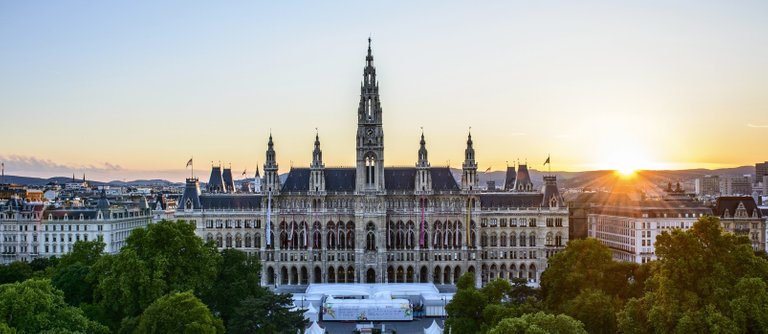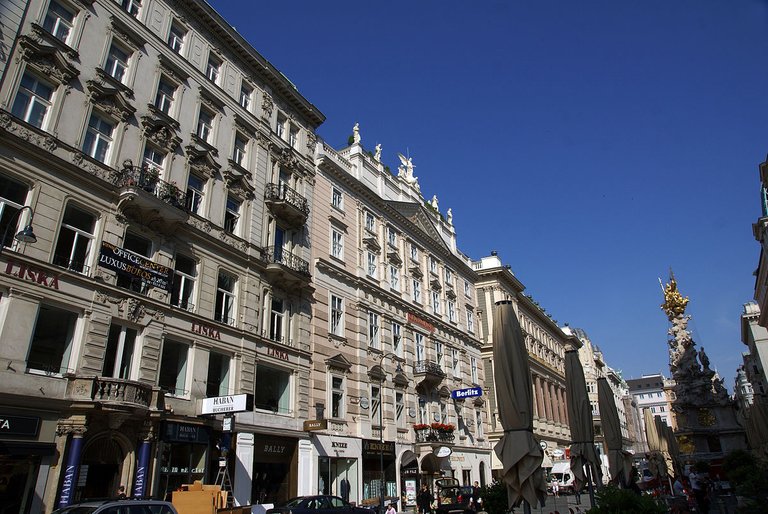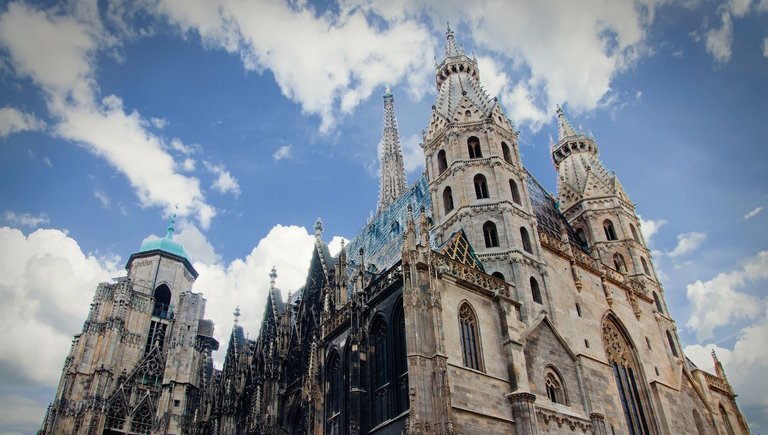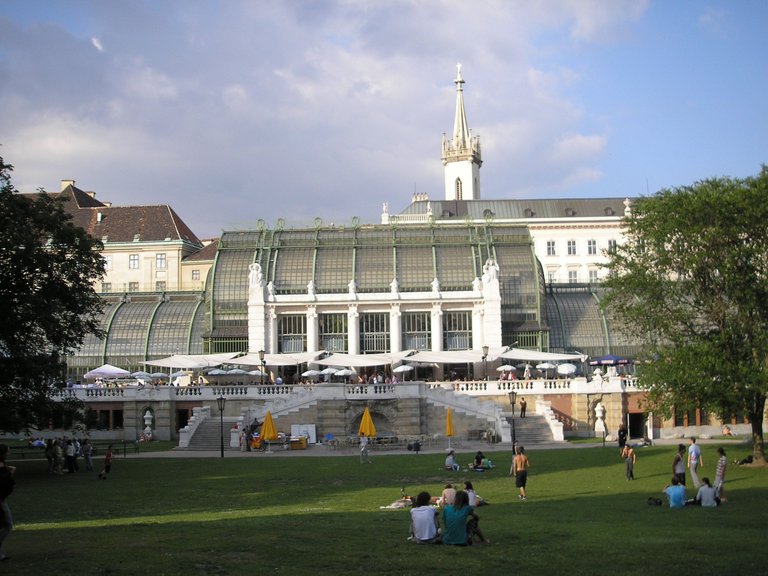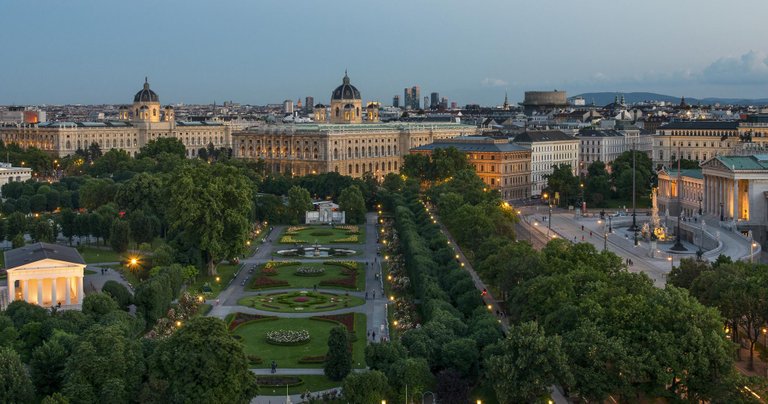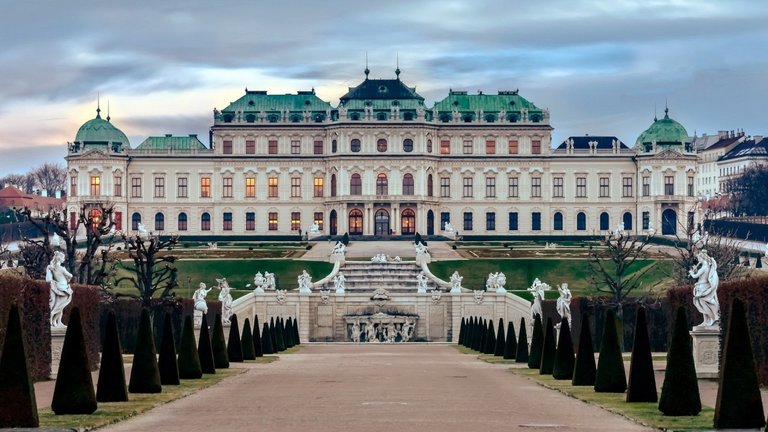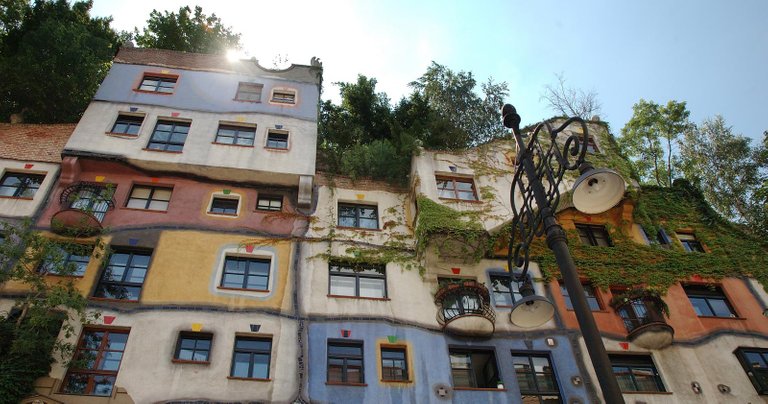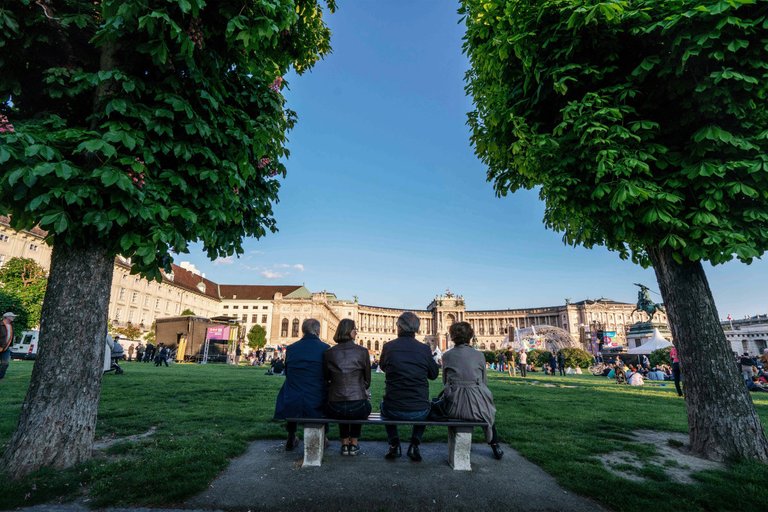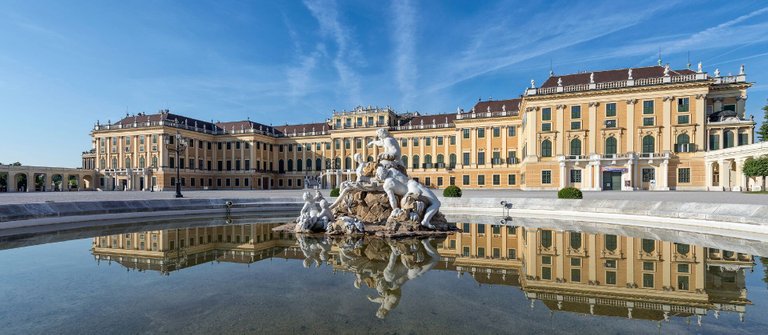Vienna is one of the most visited capitals of Europe and it's easy to understand why. Being the largest city of Austria, and the capital also, Vienna is the crem de la crem of what Austria has to offer. If you are not passionate about skiing and other winter sports and just looking to spend a romantic weekend filled with long walks on it's street full of lights or enjoying a nice dinner in a restaurant hidden behind walls full of history than book your ticket now. In this post we are going to take a look at some of the most important places to visit while in Wien.
10. Wiener Rathaus
It is not a place where you can enjoy famous sausages, although there is a restaurant serving Vietnamese delights. Here is the town hall, as well as the headquarters of the government. The Gothic building, built in 1880, prides itself on the statue of the medieval knight, Rathausmann, who stands at the top of the tower and is a symbol of Vienna. Wiener Rathaus is currently undergoing complex renovation work, which is expected to end in 2023.
9. TheSpanish Riding School
It is a traditional school for horses from the Lipitani breed, which offers performances for the public in the winter horse riding school, in Hofburg. The school calls these classical dressing performances, but most of those who follow them call them magic. The location has been trained for more than 400 years. The 68 stallions, whose ancestors come from Spain - are trained and offer performances at the Winter School since 1735. Horses and riders also have special training that lasts for many years.
8. Graben
It is one of the most famous streets in the center of Vienna. The word Graben means a ditch in German and dates back to the time of an old Roman camp in the Austrian capital. At that time, Vienna was surrounded by a wall, bordered by a ditch. The ditch was then closed and became one of the first residential streets in Vienna. Initially, craftsmen lived in Graben in wooden houses, but later a market appeared and then houses were built for the city's elite. Currently the artery is a commercial one, where you can buy many local products, including the famous Viennese porcelain.
7. St. Stephen's Cathedral
Also known as Stephansdom, it was originally in the 12th century a parish church. Today, the Catholic Archbishop of Vienna is serving here. The church was destroyed during the Second World War, but it was rebuilt in seven years. The cathedral, one of the most important symbols of the city, rises seamlessly to the horizon line. Its impressive roof is covered by 230000 tiles. The building has over 18 altars, built in different moments of its existence and contains valuable artworks.
6. Burggarten
It is a former royal garden, built according to the English garden model. It served as a royal garden for the Habsburg dynasty. One of the rulers of Austria, Kaiser Franz II used to work in the garden, where picnics would be organized in the beautiful days. A memorial dedicated to the famous Mozart composer is found in a corner of the garden, while Palmenhaus, a magnificent glasshouse, is in the north. The left side of the greenhouse hosts the Schmettlerlinghaus, where visitors can admire tropical butterflies and even bats.
5. Ringstrasse
A long street of over 5 kilometers, which surrounds the city center. It was built on the order of Emperor Franz Joseph in the middle of the 19th century and here are many of the most important buildings in Vienna: palaces, museums and headquarters of state institutions. Of these, the State Opera, the Museum of Natural History, the Town Hall and the Scholarship. Buildings depict different architectural styles and are considered true masterpieces. The Ringstrasse construction began in 1857, the street being inaugurated in 1865.
4. Belvedere Compound
It is an integral part of the history of Vienna, made up of several palaces and a orchard dating back to the 17th century. The palaces are built in Baroque style. Prince Eugene of Savoy built this complex as a summer residence. During the French Revolution, here was the royal court of France. The Belvedere is magnificent at nightfall when it is fully lit and offers the most beautiful views of Vienna.
3. Hundertwasserhaus
It is a colorful apartment building near the center of Vienna in the Landstraße district. It took its name after the Austrian artist Friedensreich Hundertwasser, who developed this concept in the 20th century, the design being made by the architect Krawina. Each of the 52 apartments has a different color, and the construction of the building ended in 1985, being an integral part of the Viennese cultural heritage.
2. Hofburg Imperial Palace
It played an important role in the history of the Austrian government and was built in the 13th century. Here lived some of the most influential kings in Europe, including the Habsburgs and the rulers of the Roman and Austro-Hungarian empires. Currently, there is a museum and residence of the Austrian President. The palace has many wings and rooms built by different royal daughters throughout the centuries, but only three of its parts are currently open to the public: Imperial Apartments, the Sisi Museum, dedicated to Elizabeth, wife of Emperor Franz Joseph and the Silver Collection, which includes imperial household items.
1. Schönbrunn Palace
With its 1441 rooms, comparable with Versailles Palace in France, Schonbrunn is one of the major tourist attractions in Vienna. The palace was built between 1696 and 1712 at the request of Emperor Leopold I and was transformed into an imperial summer palace by Maria Theresa. The palace park offers many attractions, including the Privy Garden, the oldest zoo in the world, a maze and Gloriette, a summer residence built of marble, on the top of a 60-meter high hill in Vienna.

